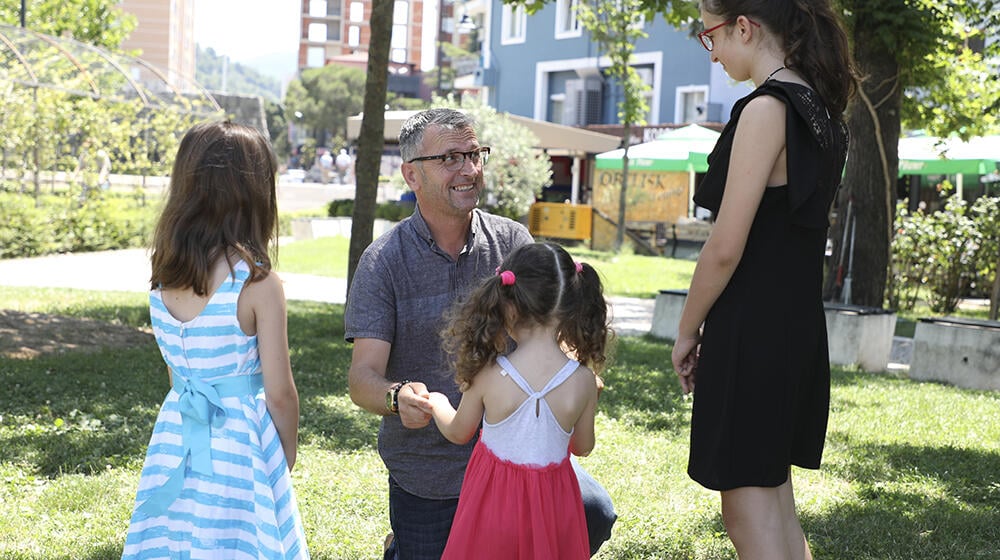“One day, my little girl was given a task by the teacher to draw her dream,” said Gjergj Figuri, from Albania. “I asked her, “What is your dream?” and she said, “to go out for a walk with my family!””
Mr. Figuri is the father of three daughters. He used to spend a lot of time at work, but this short conversation with his daughter made him rethink his work/life balance. He promised his daughter that she would no longer have to dream. “We will spend more time together,” he told her. “I will always be there for my daughters.”
Mr. Figuri works for one of 19 companies that are part of UNFPA’s Expanding Choices programme. UNFPA, with support from the Austrian Development Cooperation (ADC), is partnering with the private sector and governments to champion gender-responsive family policies in the Western Balkans and Moldova. Evidence shows that such policies – both at the national level and those implemented by the private sector – are powerful tools to shift discriminatory gender norms and redistribute unpaid care work so that both women and men can realize their career aspirations and their fertility intentions.
For example, in Kosovo, 91 per cent of men who took parental leave to share in family caretaking responsibilities said that it had a positive impact on their relationship with their children. When men play a more active role in caregiving, it also supports women and enables them to fulfil their career and fertility aspirations and balance their work and life.
Edi Gusia, Chief Executive of the Agency for Gender Equality in Kosovo, believes that affirmative legislation is an opportunity to encourage fathers to take parental leave and that this should be accompanied by actions that challenge social norms and gender stereotypes.
“The use of parental leave by fathers is an opportunity that should not be missed,” said Ms. Gusia. “We need to help them understand the importance of it. Parental leave for fathers is a chance to be present in one of the most important periods of growth for their children from an early age, in a balanced family environment.”
UNFPA encourages governments and the private sector to adopt and implement inclusive family policies including paid parental leave for men. These policies support all employees to balance their work responsibilities with their care and family responsibilities, by creating a supportive work culture and environment and providing both practical and abstract support to employees to do so. Learn more about how UNFPA works with companies to pilot family-friendly workplaces.



